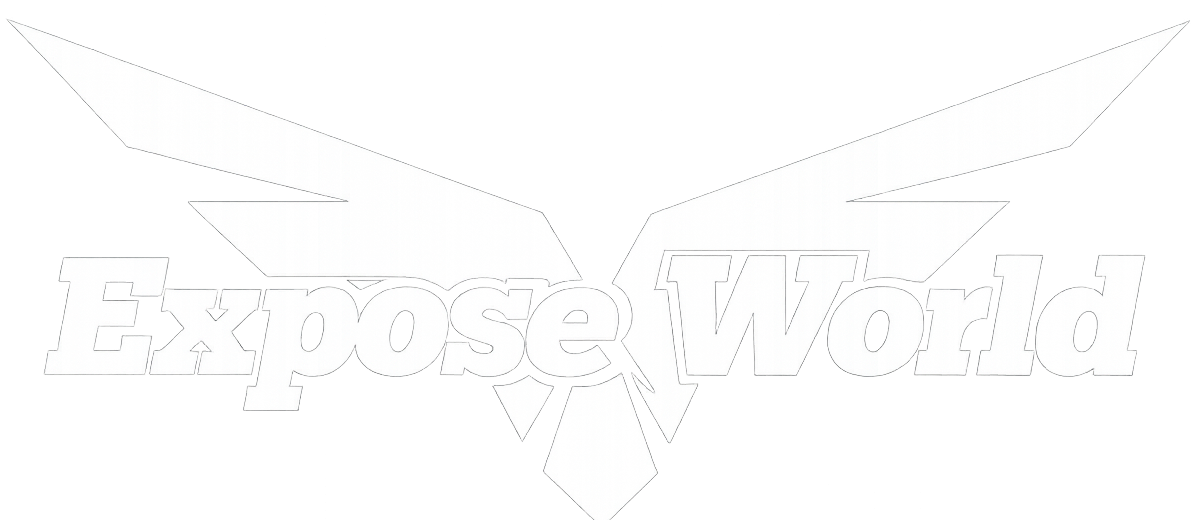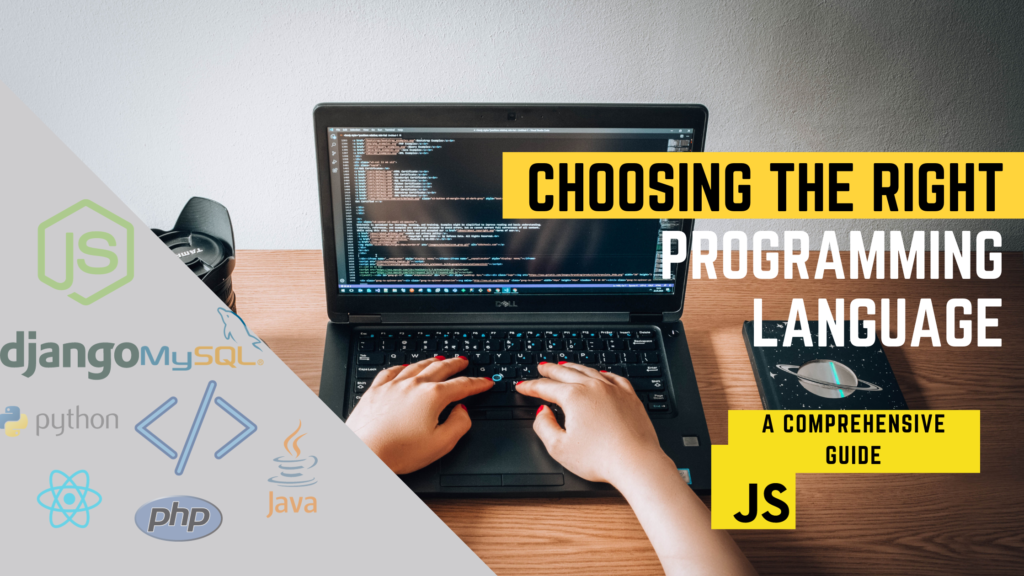In the ever-changing sphere of technology, pinpointing the best programming languages to learn in 2024 is akin to navigating a maze of innovation. Our exploration of the most practical programming languages for software development will arm aspirants with the necessary tools for success. As an enthusiast of software development, I’ve seen how Python’s simplicity enthralls beginners with its easy-to-read syntax, and JavaScript’s omnipresence continues to dominate in both front-end and back-end development. Meanwhile, Java’s robust presence in Android app development and extensive web applications secures its position as one of the top coding languages for employment opportunities in various sectors.
The programming landscape is experiencing a significant revolution, courtesy of AI and ML’s remarkable ascent, making them indispensable for those pondering over what coding language should learn. Meanwhile, the advent of cloud-based development brings languages like Go into the spotlight, celebrated for their performance and memory management. Whether it’s building vibrant app ecosystems with Swift or embarking on system-level coding adventures with C and C++, there’s a language tailored to your aspirations.
We’ll unearth the top programming language for your career goals, ensuring adaptability and mastery at each step. Chatting with peers, I’ve realized that the path to discovering the best computer language to learn for jobs is about aligning one’s interests with the pulsating heart of the industry landscape. Moreover, nourishing one’s curiosity with emerging technologies such as data science, machine learning, or app development is as vital as it is thrilling.
Join me as we explore the realms of Rust’s safety features and TypeScript’s scalability, and how these qualities reinforce their rising status in the programmers’ toolkit. We’ll also glance at other notable contenders, from the dynamic world of Ruby to the structured queries of SQL. In this article, we aim to deliver a comprehensive guide to the most useful programming language – one that not only aligns with current job market demands but also equips you for an adaptable future. Whether you seek to be at the forefront of app development or simply aiming for a versatile foundation in coding, we’ll ensure that your questions like “What is the best programming language to learn?” lead to clear, informed decisions. So, let’s embark on this exciting exploration to pinpoint the best programming language to learn for jobs, passion projects, and the pursuit of technological excellence.
Table of Contents
Understanding Programming Languages
To truly comprehend this subject, it’s essential to understand the anatomy of programming languages, the critical tools that empower us to animate our digital concepts. These languages, from the prevalent Python to the streamlined Go, are complex communication systems with their syntax—a set of grammatical rules akin to those that structure sentences in a natural language. As I pen this article to reveal the best programming language to learn, I’m reminded that the decision transcends trends and requires a deep understanding of these languages’ foundations.
Programming languages each carry distinct semantics—the meaning behind the code we pen down. It’s fascinating to see the execution of a command in Python versus in Java; the same logical concept is articulated in different syntaxes with nuanced semantic differences. Learning to distinguish these subtleties can empower us to make informed decisions about the most useful programming language for our specific purposes. Through my conversations with seasoned developers and industry veterans, the importance of mastering a programming language’s semantic intricacies has been cemented as a crucial step in the journey to becoming a proficient coder.
And of course, we cannot overlook the types, the fundamental classifications that dictate what kind of data we can manipulate. Types are the variables’ categorization, akin to knowing whether a word is a noun or a verb—crucial knowledge for constructing error-free sentences. As we assess the best programming language to learn, it’s also worth noting the breadth of application that each language offers; from Python’s ubiquity in both data science and web development to C#’s niche within the Microsoft ecosystem, each language paints a colorful landscape, encouraging us to ponder, what coding language should I learn?
If you’re leaning towards app development, Swift might be your go-to language, while the robustness of Rust could appeal to those interested in system-level programming. Not to be overlooked are languages like SQL, which remain indispensable for database management. This tells us that the best computer language to learn for jobs could be just as much about relevance as it is about personal or project-based suitability. As you align your career goals with industry demand, you should weigh these considerations carefully, as the best programming language to learn for jobs today could very well be different tomorrow. So, as we navigate this landscape, let’s ensure that the choice of the most useful programming language is well-informed, versatile, and future-proof.
Top 5 Best Programming Languages for Beginners in 2024

As we step into 2024, the decision of which programming language to start with can be daunting for novices in the coding world. As a software developer attuned to industry trends, I’ve navigated the vast sea of programming languages and emerged with a clear roadmap for beginners. Recognizing that the best programming language to learn is determined by its accessibility and practical application, let’s explore the most suitable options for those embarking on their coding journey.
1: JavaScript: Topping the charts, JavaScript continues to shine as the cornerstone for budding programmers. My earlier experiences with JavaScript have only solidified my belief in its indispensability, particularly in front-end web development. It’s the kind of language that greets you with a forgiving syntax, nudging you gently into the eclectic world of coding. JavaScript exemplifies a most useful programming language, renowned for its:
- Broad adoption across browsers and platforms
- Compatibility with numerous libraries and frameworks
- Versatile applications, ranging from websites to server-side programming.
2: Python: Python remains a stalwart among the most useful programming languages to learn. At a glance, its clean and uncluttered syntax could easily be mistaken for pseudocode. It welcomes novices with open arms, propelling them deeper into domains where logic and creativity are paramount. As someone who has seen the language’s evolution, I vouch for Python’s strengths in several spheres, such as:
- Scientific computing and machine learning
- Back-end web development and data analysis
- Automation scripts and simple desktop applications
3: Rust: Rust is a language I’ve observed gaining rapid traction amongst developers who prioritize memory safety and concurrent programming. It’s a system-level language, meaning it grants control akin to that of C++, albeit without common pitfalls and snags. Opting for Rust could lead learners to opportunities within organizations like Google and Microsoft that value:
- High performance and reliability
- Security features that prevent common bugs
- An upcoming ecosystem of modern tools and libraries.
4: Go (Golang): Go, endearingly dubbed Golang, is a language I’ve embraced for its straightforward syntax and phenomenal concurrency support. It’s a language designed for efficiency and scalability, making it ideal in the realms of cloud computing and microservices. My run-ins with Go have always been pleasant, especially when quick development turnarounds were paramount. Its claim to fame includes:
- Strong backing from Google, signaling a robust future and opportunities
- An approachable syntax that eases the learning curve
- A built-in garbage collector and rigorous standard library
5: Swift: When discussing which is the best programming language to learn for app development, Swift undeniably claims the spotlight for those eyeing the Apple landscapes of iOS and macOS apps. I’ve found Swift’s performance and developer-friendly attributes as undeniably influential in crafting seamless applications. Swift has a swift (pardon the pun) ascendancy for reasons such as:
- Interactive Playgrounds that revolutionize the learning and testing process
- A focus on safety, performance, and expressive syntax
- A wealth of resources and community support aiding beginners. This list crystallizes my point that the best programming language to learn for jobs doesn’t merely rely on popularity contests; rather, it’s an intersection of ease of learning and industry demand. Whether it’s JavaScript’s ubiquity across web interfaces or Python’s jack-of-all-trades versatility, each language serves as a gateway to the labyrinth of technology careers. The threads that bind these languages are their growing ecosystems, community support, and alignment with future tech innovations. So as we ponder over what coding language should I learn, perhaps a better question might be, ‘Which language can best sculpt the future I envision?’ And for every aspirant teetering on the edge of this decision, rest assured, the top programming language you choose today will help you carve a niche in the tech expanse of tomorrow.
Choosing the Right Language for Your Goals
Reflecting on our exploration in this article, choosing the best programming language to learn is comparable to selecting the ideal tool for a task—it must align perfectly with your unique needs and goals. In my experience as a software developer, I’ve equated this selection to a personal dialogue about one’s aspirations and career goals. Ultimately, our choice hinges on aligning these ambitions with the technical strengths and industry demands of the programming language in question.
Consider this: if your eyes light up at the thought of sculpting a web application from scratch, then diving into JavaScript might be your best bet. It’s the key to manipulating website behaviors and interactive features that users love. I’ve seen countless jobs hinge on JavaScript expertise, making it a strong contender for the title of best computer language to learn for jobs involving front-end development. Python, I’ve found, is unmatched in versatility—it’s as if you’ve been given a Swiss Army knife for web development, automation, and prying open the doors to data science. I remember starting with Python years ago; the decision was guided by its broad spectrum of applications, and I haven’t looked back since.
For those with a penchant for data, SQL’s structured approach to database management could be what propels your career in data analysis. And if you’re eyeing the burgeoning field of systems programming or projects that prioritize performance, Rust and Go are my recommendations. Their rapid ascent in popularity reaffirms their place among the top programming languages for developers requiring efficiency and safety in high-performance applications. Here’s a glance at key considerations for selecting a language:
- Personal Goals: Align the language with your envisioned career path and interests.
- Programming Experience: Factor in any current skills that could influence the learning curve.
- Field of Interest: Choose languages like Java or Swift if app development captivates you, or perhaps Solidity if blockchain calls your name.
- Industry Demand & Salary Prospects: It’s practical to consider which languages are in high demand and offer competitive salaries. Amid these thoughts, I’d advise keeping an open mind. In 2024, as you consider what is the best coding language to learn, remember that the tech landscape is in constant flux. Being able to pivot and adapt to learning new languages as industry trends evolve can offer more longevity in your career than proficiency in a single platform. Furthermore, gravitate towards languages that offer abundant learning resources and community support—they’ll be your compass as you chart new territories in the coding jungle. Whether you’re aiming for versatility or specialized expertise, your chosen language should offer a doorway to a wealth of career opportunities and personal growth. So as we continue this adventure in discovery, remember that the most useful programming languages to learn are those that propel you towards your goals. Take the time to practice, adapt, and stay abreast of technological advancements. In the world of coding, our best asset is our curiosity, guiding us through the endless possibilities that programming presents. The best programming language to learn for jobs, passion projects, or innovation will always be the one that resonates with your aspirations and molds to the changing contours of our digital society.
Conclusion
In conclusion, as we’ve navigated the dynamic programming landscape of 2024, we’ve highlighted the key programming languages that cater to our current career interests and the evolving needs of the tech industry. From Python’s versatility and JavaScript’s omnipresence to Rust’s systems-level precision and Go’s efficiency, we’ve captured the essence of what makes each language a strategic choice for developers at this point. The insights provided are designed to inform, guide, and inspire your next steps as you tailor your learning trajectory to your career aspirations and the vibrant trends in technology.
The importance of continuous learning and adaptability cannot be overstated in our quest to choose the best programming language to learn. As we embrace the coding languages that resonate with our goals and the needs of the market, let us move forward with the understanding that the tech world is a landscape of lifelong learning and growth. Whether through professional development or personal curiosity, the mastery of a language empowers us to not only meet the needs of today but also to innovate for the challenges of tomorrow. Keep learning, stay curious, and let your chosen language be the key that unlocks a future brimming with technological prowess and success.
FAQs
Amid the insights we’ve gathered on the journey to identifying the best programming languages to learn, it’s only natural to encounter questions and a desire for deeper understanding. Let’s address some frequently asked questions that may be on the minds of coding enthusiasts and career navigators, ensuring we leave no stone unturned in our pursuit of clarity.
- Which Programming Language is Projected to Be on Top in 2024? With the intricate dance of technology ever in motion, pinpointing the single best programming language to learn is as complex as it is dynamic. However, I’ve observed through industry patterns that Python continues to exert a significant influence. Its simplicity and versatility make it the most useful programming language for domains like machine learning, data science, and back-end development, cementing its position at the top in 2024. Keeping abreast of such trends is not just about immediate utility, but it leans heavily into forecasting the trajectory of the tech ecosystem.
- How Do I Choose Between the Top Programming Languages? Choosing what coding language should I learn is a profoundly personal yet practical decision. Reflect on your passions—do you envision yourself as an app developer, a data analyst, or perhaps, a creator of intricate AI models? For app development, Swift surfaces as the best programming language to learn for app development within the Apple ecosystem. If your interests align with web technologies, you might find JavaScript, the top programming language for creating interactive web applications, to be an irresistible lure. Remember, the best coding language to learn for jobs aligns closely with your goals and the tasks you wish to master.
What Should I Consider When Learning a New Programming Language? When deliberating over what is the best programming language to learn, I urge you to consider several facets—your current skill level, the language’s learning curve, and its application in your field of interest. It’s equally important to ponder over the best computer language to learn for jobs that are in high demand, ensuring that your new skills align with where the job market is headed. Whether it’s the broad utility of Python, the scalability of JavaScript, or the safety of Rust, the best programming language to learn for jobs should be a beacon guiding you toward a rewarding career path.
In essence, your endeavor to understand the most useful programming languages to learn is a reflection of your adaptability and commitment to growth. As you immerse yourself in coding, let your curiosity lead the way. The best programming language to learn is one that resonates with your aspirations and preparedness to shape the digital realm. Keep these FAQs in your toolkit as you navigate the fascinating world of technology, and may your chosen language unfold a path brimming with success and innovation.






